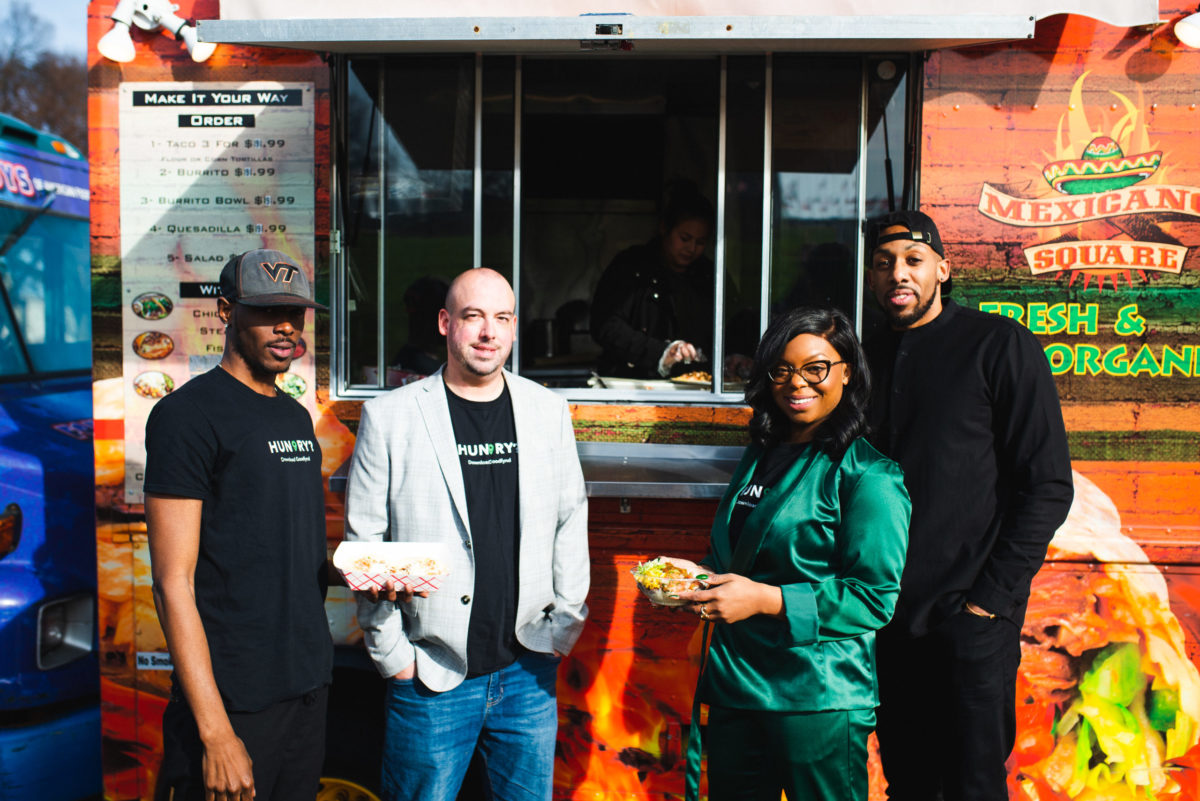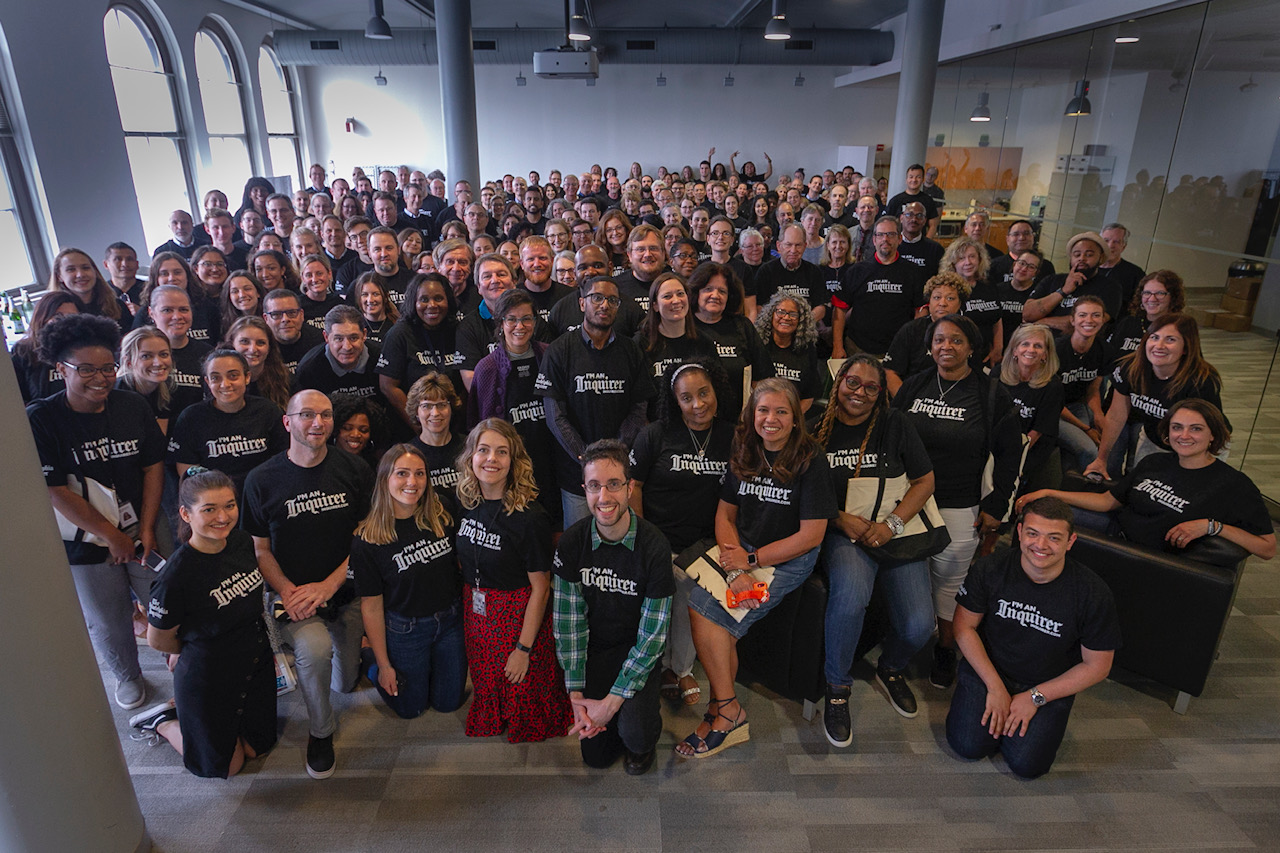It’s a new year, and we’ve been publishing annual looks at the most promising local tech companies under our RealLIST Startups series for five years now.
This is the list where we name 20 local startups that we think will make waves this year via landing funding, excelling on their missions, hiring employees, meeting goals and more. We curate this trusted list each January by sifting through past coverage, social media, nominations, dry searches on Google (which this reporter did a lot of) and other tactics.
Last year’s list honored companies in the insurance tech, healthcare, real estate and the education sectors, just to name a few. Curating Technical.ly DC’s 2021 list has felt especially different and personal because all of the tech companies in the region are still finding ways to operate through the coronavirus pandemic. Sadly, we’ve seen some businesses shutter, but it’s also encouraging to see that the founders behind the startups represented on this list weathered the pandemic in creative ways. Some have even launched their ventures in the midst of it.
(Take a trip down memory lane and read our 2017, 2018, 2019 and 2020 RealLIST Startups for D.C.)
Getting a little sentimental over here: This is the third time I’m sourcing and reporting Technical.ly DC’s RealLIST Startups — a task I deem as the most important to kick off the year. Sometimes I get it wrong, but I take pride in the fact that most of the picks I make are right, based on the fact that our honorees have proven time and time again why they are “real” through the impactful moves that they make.
Just a reminder, companies chosen for the list fit these criteria:
- Founded no earlier than 2018, or three years ago, thanks to our 2012 definition of a startup
- Make the lion’s share of their revenue from a specific product offering — so, no agencies
- And have not been through a significant exit event like a merger or acquisition
*Drum roll please*
Here is Technical.ly DC’s 2021 RealLIST:

10. Poppy

Cameron Hardesty, founder and CEO of Poppy. (Photo via Linkedin)
Founded in 2019 by former UrbanStems head of product Cameron Hardesty, this tech-enabled flower startup is primed to rise to the top this year. Ivy City-based Poppy is a direct-to-consumer, ecommerce company with a mission to make picking event flowers a fun and easy process. When the pandemic hit, Hardesty quickly began offering Poppy At Home floral arranging kits to provide a distraction while we’re all social distancing. The startup continued serving consumers through these kits, distanced weddings and other events last year. Hardesty was also accepted into the 2020 Techstars Atlanta Accelerator program.
9. Goodfynd

The Goodfynd team. (Courtesy photo)
Cofounded by Kyle Miller and Lemaire Stewart in 2018, this Black-owned startup curates a Saas-based platform that connects consumers to the nearest food trucks and vendors. Fairfax, Virginia-based Goodfynd is focused on making locally-made food more accessible, while enabling small and growing food businesses to better connect with their communities. Despite being bootstrapped and weathering the pandemic, the startup hit its $100,000 revenue mark last July and was also crowned one of the winners of the Dominion Energy Innovation Center’s annual pitch competition. Since participating in the Lighthouse Labs accelerator back in 2019, Goodfynd has expanded across the DMV region with more than 400 food trucks using its platform.
8. Hurdle
Formerly Henry Health, downtown D.C.-based Hurdle is the developer of a digital mental health platform, with a focus on providing mental health services and self-care support to people of color. The three-year-old company was founded by mental health advocate Kevin Dedner, who now leads Hurdle as CEO. This month, the startup closed on $5 million in seed funding, with investments from 406 Ventures, Seae Ventures and F-Prime. This was Hurdle’s first major funding round and it plans to use it this year to expand its leadership team and scale its mental health platform.
“With depression spiking in Black and minority communities, this year is an inflection point in mental healthcare,” said Dedner in a recent statement. “The events of 2020 present a unique opportunity for Hurdle to create solutions that work for anyone, but most importantly, for the most underserved populations.”
7. RNAimmune
Established in early 2020, Gaithersburg, Maryland-based RNAimmune is a biopharmaceutical company that discovers and develops mRNA-based therapeutics and vaccines. The company spun out of Sirnaomics, a large biotech company conducting clinical drug development in the field of RNAi therapeutics for the treatment of cancer and fibrosis diseases. RNAimmine secured $2.35 million in seed funding to advance its flagship COVID-19 and cancer vaccine programs in September. While it plans to grow this year, the company’s founder and CEO, Dr. Dong Shen, will be focused on fostering more investor relationships to secure more funding.
6. Glimpse

D.C.-based Glimpse cofounders during Y Combinator summer 2020. (Photo via Twitter)
In summer 2020, Glimpse completed Silicon Valley’s well-known Y Combinator startup accelerator. By the fall, the D.C.-based startup closed a $1.5 million seed round led by Origin Ventures to grow its team and expand its marketplace. Using its platform, rental hosts can gain access to free or discounted products to furnish their properties for a short period of time.
The startup was cofounded by Purdue University computer engineering and engineering graduates Akash Raju, Kushal Negi and Anuj Mehta . The team began building Glimpse while they were studying at Purdue. Since wrapping up their time at Y Combinator, the company has welcomed its first batch of employees, including engineer Daniel Garcia as an engineer, strategy and operations associate Megan Carroll, senior sales development representative Harry Trinh and Patty Vitsupakorn, a marketing and design intern.
5. Sorcero

Dipanwita Das, cofounder and CEO of Sorcero. (Photo via Linkedin)
This Adams Morgan-based startup built a language intelligence platform to make it easier for a company’s team members to find answers to questions within internal documents. Launched in 2018, Sorcero CEO Dipanwita Das bootstrapped the company with an initial $100,000 investment. Sorcero has since closed a $3.5 million bridge round last summer, even though Das said she wasn’t actively seeking to raise venture capital at the time. Sorcero has raised $5.4 million in venture capital since its launch, and continues to expand its team, with plans to add more members this year.
“When I pitched at Vinetta, what I pitched was bridging the gap between learning and work, and that is what we are doing,” Das said in a previous interview with Technical.ly, speaking of her presentation to the D.C. chapter of the The Vinetta Project. “We are making sure that people are able to do their work better but they are also learning as they do it. But how they do it is where everything changes and that’s where the real meat of everything is.”
Check out more about Das in this Technical.ly DC Diaries episode.
4. Quantum Xchange
Bethesda, Maryland-based Quantum Xchange, developer of advanced encryption technology and products, is innovating in cybersecurity by using quantum mechanics to better protect transmitted data. This month, the company closed a $13.5 million Series A and welcomed some new C-suite executives including Eddy Zervigon as its new CEO, Holly Neiweem as CFO and Shahryar Shaghaghi as CTO. Quantum Xchange has raised roughly $24 million in venture capital since it launched in 2018, and it currently employs 10 full-timers. The company has plans to expand its products this year and add to its advisory board.
3. Lupl
Despite not having launched yet, this D.C.-based developer of an open source software platform for the legal industry has been growing tremendously. Lupl expects to launch this year and the startup has already raised $24 million in venture capital, including a recent $14 million investment. This investment came with some key hires including the addition of Jeff Green as CEO and Cheryl Wilson Griffin as chief customer officer. They will work alongside the company’s chief commercial officer, Matt Pollins.
Lupl has an ambitious plan to expand its team to 75 employees worldwide by the end of the year. The company is currently beta testing its platform with a select group of law firms and reports that more than 500 firms have joined a waiting list to implement its flagship product.
2. Stacklet

Stacklet cofounders, Kapil Thangavelu and Travis Stanfield. (Photos via Linkedin)
Arlington, Virginia-based cloud management software developer Stacklet has been growing since it launched out of stealth last August. The company came on the scene with $4 million in seed funding, and in January, Stacklet closed an $18 million Series A.
Cofounded by technologists Travis Stanfield and Kapil Thangavelu, the company provides a solution that addresses enterprise needs on cloud governance, including security, operations, visibility and cost optimization. Stacklet has a team of 15 employees and has already signed on Fortune 2000 design partners. This year, the company will be focused on developing its commercial platform.
1. Class Technologies Inc.

Michael Chasen. (Photo via Twitter)
The pandemic meant more people spent time learning at home. So D.C.-based Class Technologies Inc. — formerly known as ClassEDU — couldn’t have come at a better time. The startup that launched last year in the midst of the pandemic is cofounded by former Blackboard, PrecisionHawk and SocialRadar executive Michael Chasen.
In September, the edtech company launched its flagship software product, Class for Zoom, as a response to the difficulties that come with remote schooling. The platform adds some everyday capabilities for educators, such as taking attendance, curating quizzes and grading. At the time of its launch, Class Technologies secured $16 million in seed funding from a portfolio of investors including Zoom’s Bill Tai and Santi Subotovsky. The company also raised $30 million to kick off this year.
“As the father of three school-age kids, I have a front row seat to how challenging remote learning is,” said Chasen in a previous statement. “That’s why we designed Class for Zoom to feel and work like an in-person classroom, and to bring back the happiness of school to teachers and students.”
###
Honorable mentions (in no particular order):
- CarpeDM
- Meaningful Gigs
- The Most
- Fluence
- Strider Technologies
- KeyCaliber
- CareerGig
- DC To-GoGo
- Dobby
- Coglide
Before you go...
Please consider supporting Technical.ly to keep our independent journalism strong. Unlike most business-focused media outlets, we don’t have a paywall. Instead, we count on your personal and organizational support.
Join our growing Slack community
Join 5,000 tech professionals and entrepreneurs in our community Slack today!

The person charged in the UnitedHealthcare CEO shooting had a ton of tech connections

The looming TikTok ban doesn’t strike financial fear into the hearts of creators — it’s community they’re worried about

Where are the country’s most vibrant tech and startup communities?


